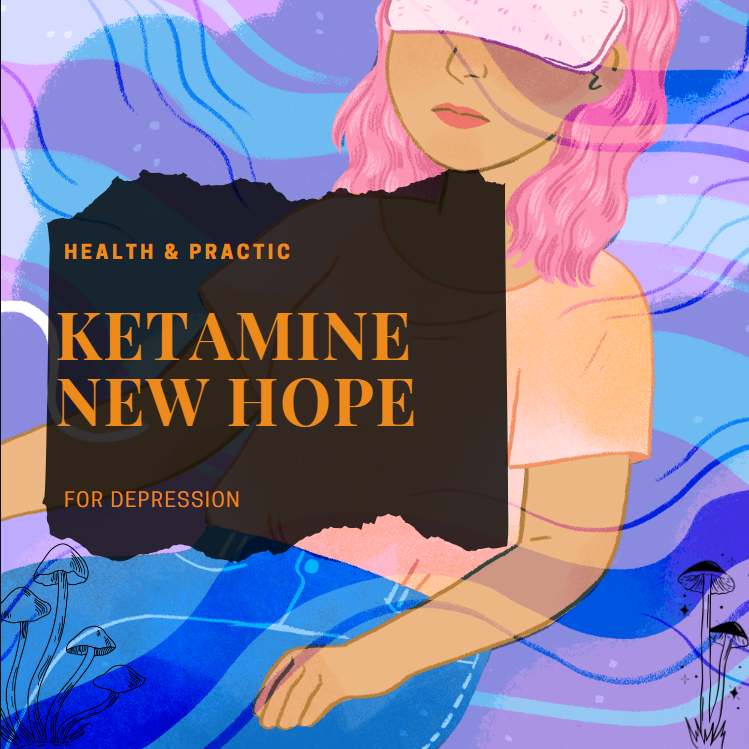
In 1962, Calvin Stevens synthesized an anesthetic CI-581.
It turned out that CI-581 repeatedly induced out-of-body experiences, or states in which the mind, is separated from the body.
What’s happening in the brain?
Тeuroplasticity plays a crucial role in ketamine’s antidepressant properties!
One of depression’s typical symptoms is that patients experience a seemingly inescapable loop of thoughts revolving around their own inferiority, a mental state called rumination. Rumination has been associated with the so-called default mode network in the brain, defined as the set of structures that are most active when we are not engaged with a specific task. The DMN is active, for example, when we think about ourselves. In depressive rumination it is functionally rigid, preserving a tendency towards a negative thinking pattern about oneself. Soon after ketamine enters the depressed brain – so the theory goes – the increase in neuroplasticity allows the DMN to connect with other brain areas. The overall brain dynamics become much less rigid, and the cognitive correlate of this may be that patients develop a less negative perspective on themselves.
FROM BRAIN TO MIND
In their manuscript “Ketamine for the Treatment Against Addiction: Evidence and Potential Mechanisms”, Ezquerra-Romano et al. mention Ketamine Psychedelic Therapy (KPT) as a model for using psychedelic experiences to treat depression.4 Mainly developed by the two Russian researchers Krupitsky and Grinenko, the theory behind KPT is that high doses of ketamine make it easier to remodel emotional beliefs related to problematic behavior, such as compulsive drug use!
The future of depression treatment:
Robin Williams: „When combined with ketamine or other psychedelics, this effect of psychotherapy can be greatly enhanced. In the future of depression treatment, we may see that the reductionist view and the psychotherapist’s view are not at odds with each other-they are complementary.“
